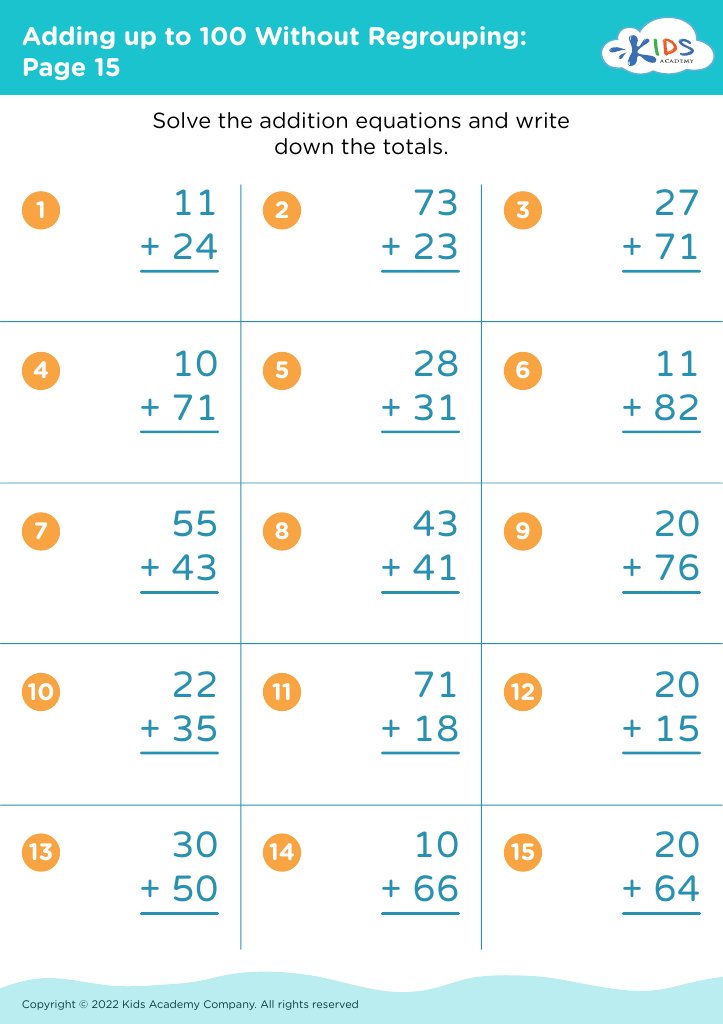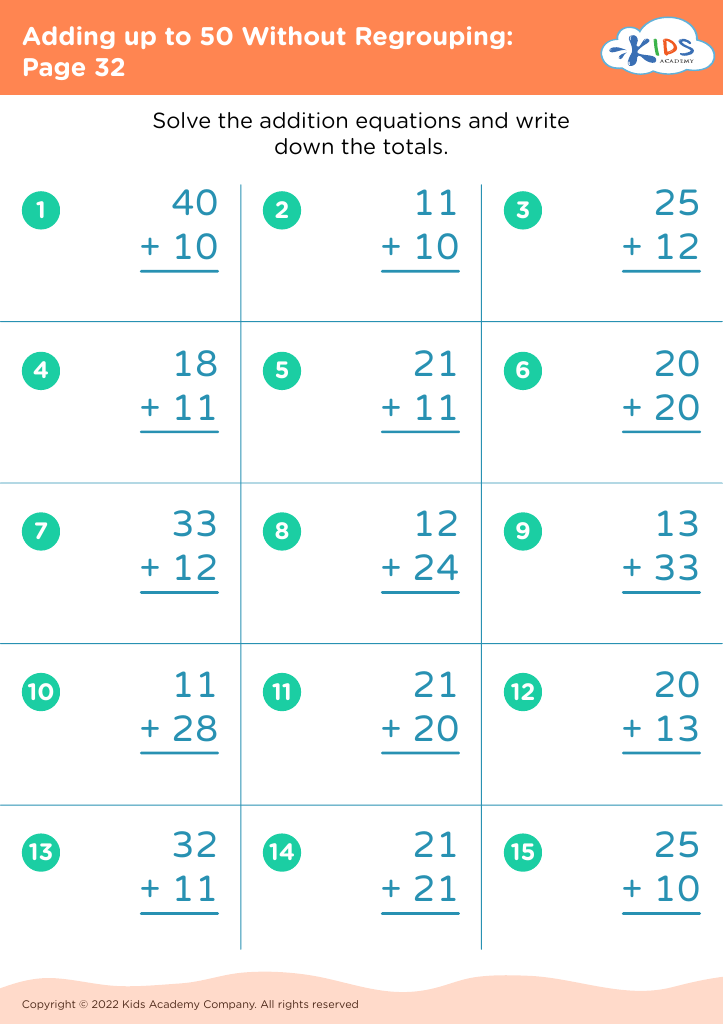Counting objects Addition Worksheets for Ages 7-9
8 filtered results
-
From - To
Engage your 7-9-year-olds with our dynamic Counting Objects Addition Worksheets designed to turn learning into a fun and interactive adventure. Each worksheet offers practical exercises to help children master addition by counting objects, consolidating foundational math skills crucial for their academic growth. These activities are tailored to boost confidence in math, enhance problem-solving abilities, and stimulate critical thinking. Print these colorful, engaging sheets to support your child’s learning journey, ensuring they build strong arithmetic skills in an enjoyable and accessible way. Perfect for both classroom and home use, helping kids to learn at their own pace.
Counting objects and basic addition are fundamental skills that form the cornerstone of a child’s mathematical development. For children aged 7-9, these skills are especially important as they are in a crucial stage of their cognitive growth and learning progression.
First, counting objects helps children understand the concept of numbers and their quantity. This hands-on method improves their ability to visualize and grasp abstract numerical concepts, making math less intimidating and more tangible. It also aids in developing fine motor skills and hand-eye coordination when children count physical objects like blocks or beads.
Second, learning basic addition builds a strong foundation for more complex arithmetic and problem-solving skills. As children learn to add, they develop critical thinking abilities and logical reasoning. These skills are applicable across various life situations and academic disciplines, making them essential for overall cognitive development.
Additionally, mastering counting and addition enhances a child’s confidence and fosters a positive attitude towards math. A strong early math foundation can prevent future struggles and anxiety related to the subject, encouraging a lifelong interest in learning.
Parents and teachers should therefore prioritize counting objects and basic addition to ensure children develop the necessary skills and confidence needed for their continued academic success and daily life.
























